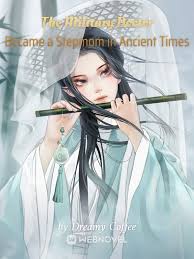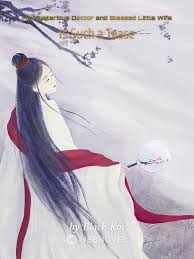The Story in 3 Sentences
A decorated military doctor and special forces operative named Ning Yue dies in a hostage rescue mission, only to awaken in the body of a disgraced woman in ancient times who shares her name but bears the scars of abandonment, poverty, and motherhood to twin boys she never chose.
Thrust into a life of survival during a brutal drought, she must protect her vulnerable new family—including her slow-witted adoptive father—from starvation, betrayal, and even cannibalism, all while wielding her modern medical knowledge and latent spatial abilities to carve out safety.
As she navigates court politics, hidden identities, and the growing affection of a powerful prince, Ning Yue evolves from reluctant stepmother to a formidable force who reshapes her world without losing the fierce compassion that defines her.
Why It Stands Out
1. From Battlefield to Hearthfire
Unlike typical transmigration tales fixated on romance or revenge, this novel roots its drama in the visceral reality of sudden motherhood and rural survival. Ning Yue’s military discipline clashes beautifully with the chaos of caring for toddlers in a famine-stricken village, creating moments of tenderness that feel earned, not saccharine.
2. Medical Realism Meets Ancient Fantasy
Her background as a combat medic isn’t just flavor—it’s the engine of the plot. From sterilizing wounds with boiled cloth to improvising antibiotics from mold cultures, her interventions feel grounded. Even her “gold finger” (a spatial storage system) is used pragmatically: bandages, IV fluids, and painkillers become lifelines, not plot shortcuts.
3. Family as Foundational Armor
While many reincarnation stories treat family as a stepping stone to power, here it’s the core. The bond between Ning Yue, her adoptive mother Madam He, and the twins isn’t sidelined for palace intrigue—it’s the emotional anchor that gives weight to every later conflict, making her victories meaningful beyond personal gain.
Characters That Leave a Mark
There’s Madam He – the gentle, resilient adoptive mother whose unwavering love for Ning Yue (despite knowing she’s not her biological daughter) becomes a quiet testament to chosen kinship in a world obsessed with bloodlines.
You’ll meet Ning Shilang, who despite his mental limitations radiates pure-hearted loyalty; his childlike fear of losing his “daughter” and grandsons adds layers of pathos that humanize the story’s harshest moments.
And Prince Chu? They’re the one who walks the razor’s edge between political calculation and genuine devotion, never reducing Ning Yue to a trophy but instead recognizing her strength even when she doubts it herself.
The Flaws Fans Debate
Some readers argue that after the first 150 chapters, the narrative abandons the intimate village setting and family dynamics that made the early story compelling, shifting abruptly into capital-based political maneuvering that sidelines the twins and Madam He for long stretches.
Critics point to inconsistent chapter ordering between chapters 280 and 300, where scenes appear out of sequence—characters jump from caves to festivals without transition—leaving plot resolutions unexplained and emotional arcs disjointed.
Others express frustration with Ning Yue’s regression from a capable soldier-doctor into a passive figure who is frequently kidnapped or injured, undermining her initial competence in favor of melodramatic rescue tropes.
Must-Experience Arcs
Ch. 1–50: The Famine Village Arc – Stranded in a drought-ravaged village with two infants and a vulnerable father, Ning Yue uses her medical skills and spatial storage to stave off starvation, fend off cannibals, and earn the trust of skeptical villagers through acts of quiet heroism.
Ch. 150–250: The Capital Reckoning Arc – Returning to the general’s household and later the imperial capital, Ning Yue confronts her biological family’s betrayal while navigating court politics, healing high-ranking officials, and slowly unraveling the mystery of her transmigration alongside Prince Chu.
Ch. 450–575: The Final Reconciliation Arc – With war looming and old enemies resurfacing, Ning Yue must balance her role as a healer, mother, and strategist. The story culminates in a bittersweet resolution that prioritizes family unity over grand titles, though some fans feel the ending rushes through key emotional payoffs.
Killer Quotes
“Mother, I’ll protect you too and Father, Brother, Grandpa, Grandma, Uncle, and Auntie, I’ll protect everyone with my life!”
“The older one’s meat is too hard, so it needs to be cooked longer. These two small ones have tender meat, so they only need to be roasted for a while.”
Cultural Impact
The novel sparked widespread discussion on Webnovel forums for its rare focus on maternal resilience rather than romantic conquest in the transmigration genre.
Fan art depicting Ning Yue cradling her twins while holding a scalpel in one hand became a recurring motif in reader communities, symbolizing the duality of nurture and defense.
Despite its 4.4-star rating and over 2.6 million views, it remains a cult favorite rather than a mainstream hit, often recommended in “underrated found-family” reading lists across Reddit and NovelUpdates.
Final Verdict
Start Here If You Want:
A transmigration story where motherhood isn’t a trope but a transformative journey.
Grounded medical problem-solving in a historical fantasy setting.
Emotional stakes rooted in family loyalty rather than harem politics or power fantasies.
Study If You Love:
Narratives that explore the psychological weight of sudden responsibility and identity displacement.
The intersection of modern expertise and pre-industrial society as a lens for social critique.
Female protagonists whose strength manifests through care, not just combat.
Avoid If You Prefer:
Fast-paced action without domestic interludes or child-rearing scenes.
Linear, tightly edited plots—this novel suffers from pacing inconsistencies and structural hiccups in its second half.
Stories where the protagonist maintains consistent agency; Ning Yue’s competence fluctuates noticeably as the plot demands vulnerability.





